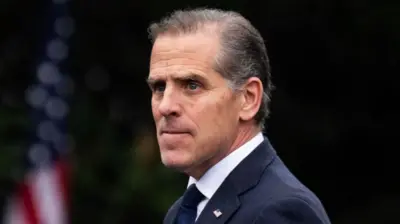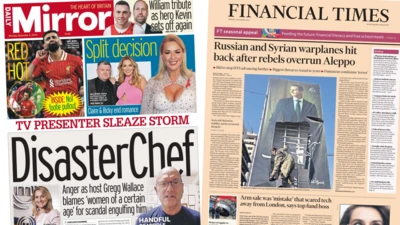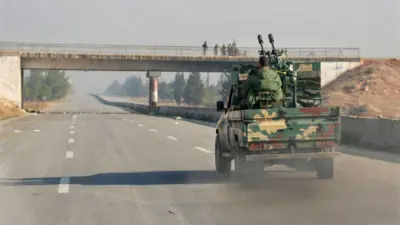We've updated our Privacy and Cookies Policy
We've made some important changes to our Privacy and Cookies Policy and we want you to know what this means for you and your data.
What is direct rule for Northern Ireland?
Image source, EPA
The longer the crisis goes on, the more likely is it the government will have to consider some form of direct rule for Northern Ireland.
Top Stories
What is direct rule?
Because of its history, Northern Ireland has a special type of government called power sharing.
Political parties representing different sections of the community have to share power, in a mandatory coalition, on matters such as housing, policing, prisons and transport.
If they can't agree, Northern Ireland's devolved government breaks down.
Top Stories
Direct rule is the mechanism for taking over the functions and powers of the government of Northern Ireland - the Northern Ireland Executive - and giving them to London.
Laws affecting Northern Ireland would be passed through the government department run by ministers in London, and the Privy Council.
Direct rule is not favoured by many because it takes power out of local hands.
Top Stories
How is direct rule implemented?
In the past, direct rule could be implemented by the government easily, just by triggering section one of the 2000 Northern Ireland Act.
However, since the 2006 signing of the St Andrews Agreement, which devolved further powers to the Northern Ireland Executive, direct rule can only be implemented if the UK government passes a law through the UK Parliament.
When was the last time direct rule was used?
Direct rule was last used between 2002 and 2007 when Tony Blair was the British prime minister.
After five years of talks, eventually the DUP and Sinn Féin were able to strike a power-sharing deal in May 2007.
Northern Ireland has been ruled directly from London in 33 of the 45 years since 1972, the year when the old Northern Ireland parliament ceased to exist.
Could this be a different form of direct rule?
There is some speculation, particularly from parties like the Irish nationalist Social Democratic and Labour Party (SDLP), that there could be a different form of direct rule from the one previously used to rule Northern Ireland.
In the St Andrews agreement, the UK government agreed not to implement direct rule without passing a law in the UK Parliament.
So to keep the nationalist parties on board there is speculation this will be "limited" direct rule, where civil servants take over responsibility for the day-to-day running while the UK government only passes legislation for important bills, such as the budget for Northern Ireland.
Many republicans and nationalists in Northern Ireland are hoping for more input from the Irish government, so called "green direct rule".
However, the British government has ruled out any kind of joint authority.
Top Stories
More to explore
Most read
Content is not available








